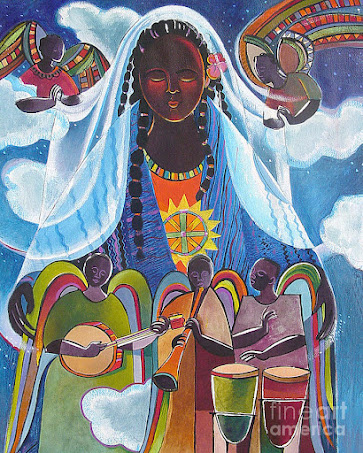 |
| Mary, Queen of Heaven art by Bro. Mickey McGrath |
Yesterday Pope Francis gave a Homily at Vespers of the Feast of Saint Mary, Most Holy Mother of God, and Te Deum of Thanksgiving at End of Year.
The whole thing is impressive (you can read it all HERE), but this paragraph particularly jumped out at me.
This is the heart: “The Word became flesh and dwelt among us” (Jn 1:14). We hear this repeated several times in this evening’s liturgy that begins the Solemnity of Mary, the Holy Mother of God. She is the first witness, the first and the greatest, and at the same time, the humblest – the greatest because she is the humblest. Her heart is filled with amazement without the shadow of romanticism, of sweeteners, of spiritualization. No. The Mother brings us back to reality, to the truth of Christmas contained in the few words Saint Paul uses: “born of a woman” (Gal 4:4). Christian amazement is not the result of special effects, of fantasy worlds, but from the mystery of reality: there is nothing more amazing and stupefying than reality! A flower, a clod of earth, a life story, an encounter, the wrinkled face of an elderly person, or the blooming face of a newborn baby, a mamma who nurses a baby in her arms. The mystery shines there.
"Without the shadow of romanticism, of sweeteners, of spiritualization ... "
Amen. Amen. This world. This Reality. Amazing, indeed.
(I so love that Francis gets this.)














